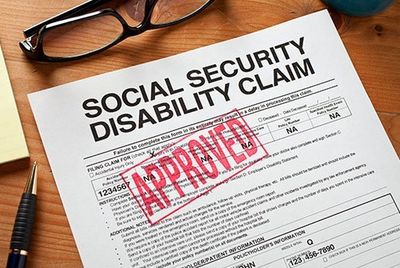SSD payments can unexpectedly be cut off at any time if certain factors are not met. Here are six reasons why your benefits could be terminated.
Depending on your disability, your Social Security Disability (SSD) benefits should last for the length of time in which you are too disabled to work. For many people, SSD benefits continue for years to the rest of their lives. However, these payments can suddenly and unexpectedly be cut off at any time if certain factors are not met. Here are six reasons why your SSD benefits could immediately be terminated.
1. You Have Obtained Gainful Work
In many cases, you are allowed to both work and receive SSD benefits - but only up to a certain amount of time or earnings. There is a certain threshold of how much you can earn before you are placed in a trial work period.
A trial work period is a length of time where you can continue to work and not lose your benefits. After that time period ends, if you are still able to continue working and earning over the threshold, then you may no longer be considered disabled.
2. Your Medical Condition Has Improved
3. You Were Institutionalized or Incarcerated
Your benefits will stop if you are incarcerated or have checked into an institution - such as a halfway house or assisted living facility. However, it depends on the type of facility, the reason for being there and whether or not you will be there long term.
You may still be eligible for benefits if you are going to be there for less than three months. With incarceration, you will need to reapply if you were in jail for a year. There are further restrictions on receiving benefits if you were convicted of a felony.
4. You Are Receiving Too Much Income
Even if you're not working, there is a chance that you can earn too much income. For example, if your spouse wasn't working when you started to get benefits but is now employed, then your household income may be too high.
Free food and housing is also considered income and can put you over the limit. Additionally, if the value of your assets rise, then you may go over the limit without even knowing about it.
5. You've Reached Retirement Age
You cannot receive SSD benefits and Social Security income at the same time, so your SSD benefits will stop once you've reach retirement age even if you are still disabled. However, it is likely that you will continue on with Social Security retirement income.
One thing that's good about this situation is that you will be less restricted when it comes to how much you can earn before it affects your benefits, so you may be able to increase your income.
6. The Beneficiary Died
If your household was receiving SSD benefits because of a disabled person who has recently passed on, then it's likely that you will no longer receive those benefits. However, if you are a spouse, elderly parent or child of the deceased or you are caring for their child, then you may be eligible for survivor's benefits. These benefits award a percentage of the deceased's benefit amount under certain conditions.
If you are disabled and unable to work, you shouldn't have to worry about unexpectedly losing your benefits because of a misunderstanding or change in circumstance. Because these benefits are critical to your survival, it's important that you have an attorney specializing in SSD and SSI. Contact Green Disability Law to schedule a consultation with a qualified attorney.



